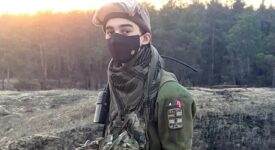Morocco decided earlier this month that it would sever its relations with Iran after Rabat accused Iranian-backed Hezbollah of training the Polisario Front and supporting activities towards the independence of Western Sahara. This move also triggered off a series of mutual accusations between Morocco and Algeria, which supports the Polisario Front. Moroccan Foreign Minister Nasser recently explained that Algeria was facilitating meetings between Hezbollah leaders and Polisario leaders in a “hideout” in the capital of Algiers. He claimed that the Iranian Embassy in Algeria worked as a link between the trio of Hezbollah, Algeria and the Polisario Front.
Iranian Foreign Minister Bahram Qasimi responded that “Moroccan officials during their meetings with our foreign minister or during their TV interviews failed to provide any evidence to substantiate these allegations.” Algerian Foreign Ministry spokesman Abdel Aziz Ali Sharif rebutted Morocco’s accusations and commented that “instead of submitting the ‘irrefutable’ evidence that he claims he [Moroccan Foreign Minister] holds, which really does not exist … the Moroccan minister chose to opt for mystification and fabrication.”
However, Moroccan university professor Abdel Rahim Manar al-Sulaimi of the Atlantic Center for Strategic Studies and Security Analysis in Rabat explains that “Morocco has detected a close coordination over the last two years between the Iranian Revolutionary Guard Corps and the Algerian Embassy in Tehran,” adding that “they couldn’t have dug tunnels and transferred missiles from Algerian territory to the Polisario Front without Algeria actually knowing. Algeria is a key partner in the Iranian project carried out by Hezbollah inside Polisario camps.”
While Professor Manar al-Sulaimi sums up that Algeria was seeking to destabilize Morocco and Iran’s goal was to expand its influence across North and West Africa, the latter’s activities are also raising concerns on the other side of the Mediterranean. Earlier this year in Brussels, some 60 MEPs demanded that the European Parliament imposes a full ban on Hezbollah, not just on its military wing. The EU designated Hezbollah’s military wing as a terrorist entity in 2012 following an attack by the organization on an Israeli tour bus in Burgas, Bulgaria.







